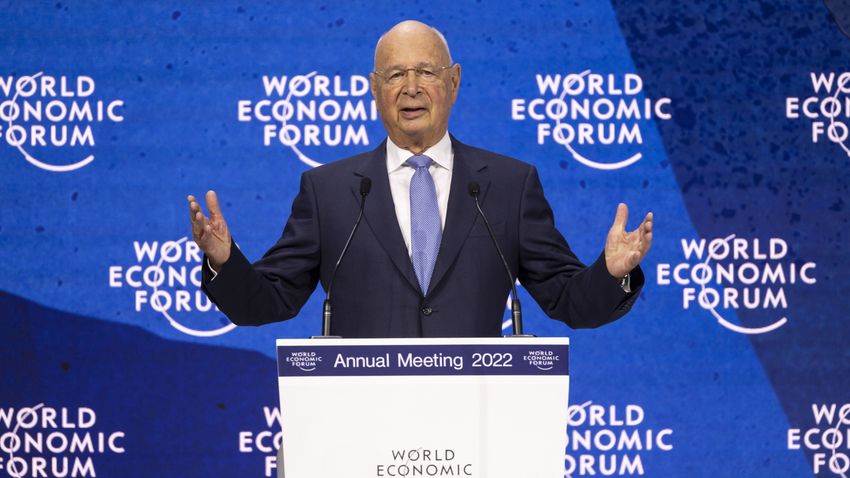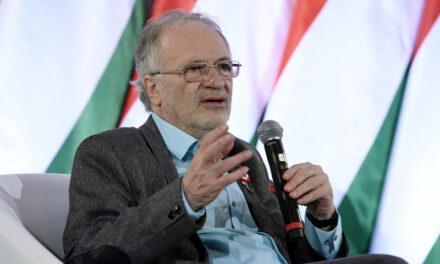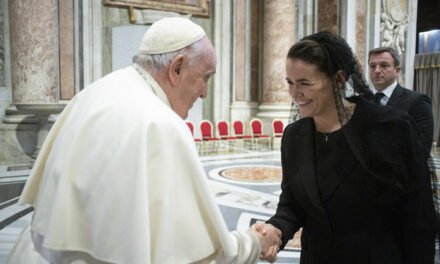Under the surface - the new world order is no longer about ideologies, but purely about power and economic interests.
We are in the middle of a completely new world order, and no matter how smart we are, it's better to humbly admit: none of us can clearly see how it will be built in the chaotic jungle of changes. We are part of a multi-factorial, interrelated set of relationships, the complete overview of which is beyond our abilities for the time being. Therefore, I myself will do no more than draw attention to a few, in my opinion, important new trends that may influence where the world can go in the 21st century. towards the middle of the century.
First, let's take a brief look at how we got to today's chaotic conditions!
We should start from the conditions after the Second World War, namely the Cold War period from the end of the forties to the end of the eighties. What characterized this era? A relatively simple, easily transparent formula. Two world orders faced each other, and the basis of this opposition was the ideological fault line, which sharply separated capitalism and communism (socialism), and democracies and dictatorships. On one side of the Iron Curtain mentioned by Churchill was the West with the countries connected to it as a block, on the other side the Soviet Union with the Central and Eastern European, Balkan, and Baltic countries it annexed and the countries that joined them from other continents of the world.
It is a very important fact that the two blocs owned 88 percent of the world economy in the 1950s. In addition, or precisely because of this, there was no talk of connectivity between the camps on both sides of the ideological fault line. also divided the bloc's economy into two.
At that time, the West tried with all its might to gain superiority over the communist bloc, to show its excellence in democracy, human rights, economy, etc. Both camps wanted to defeat the other, and the West succeeded in this in 1989-1990, and the Soviet Union fell to pieces.
Then followed the transitional period that lasted perhaps thirty years, which can be called a unipolar world order, since the United States continued to grow stronger again, just like after the Second World War, and could believe that it had truly become the master of the world. It was then that Fukuyama wrote his infamous theorem about the end of history and the final victory of liberal democracies, and the USA really exercised moral, military and economic control over the world during these decades, eviscerating Russia, for example, economically under Yeltsin. In my opinion, this is where the rule of ideology ended: referring to great ideals – under the title of human rights, democracy, rule of law, free elections, action against autocracies and dictatorships – the USA actually interfered in the internal affairs and economic relations of sovereign states with pure world power intentions, 2001 .and from September 11, it attacked Middle Eastern countries, first Afghanistan, then Iraq, and later Syria and Libya, citing action against terrorism. (Of course, since the 1950s, the USA has continuously intervened - based on its economic interests - in the power relations of other countries, from Iran to Vietnam to Latin American countries and on to Yugoslavia.)
These thirty years were the period of the unipolar world, dominated by the United States, which extended its power and influence to Western Europe, among other things, and in 1951, with its support and initiative, the European Coal and Steel Community was established as the forerunner of the federal union , and its influence on the union has not diminished in the last thirty years, on the contrary.
On the one hand, this unipolar rule was broken by the brutal rapid rise of China, as a result of which it is now practically on an equal footing with the USA, and from then on there is no longer a unipolar world. On the other hand, Russia, which has rallied economically under Putin and is militarily just as strong as the USA (obviously mainly because of nuclear weapons), and signed up as a middle power factor by attacking Ukraine, in defense of its own geopolitical interests, which the USA ignored. The third factor is a concentrated, supranational, financial elite, let's call it the Davos elite (based on the headquarters of the World Economic Forum), whose power and influence have become totally extensive through their global networks. This is evidenced by the fact that, according to an American research institute, more than half of the 100 economic entities with the largest GDP are not nation states, but giant companies or financial institutions , such as BlackRock and Vanguard.
The global elite, one of whose leading figures is Klaus Schwab, has the clear goal of creating a world state over nation-states and by eliminating democracy, in which technocracy rules the world, and even the USA and China become part of it.
So where are we now? While - with the opening of economic relations and the technological and financial globalization of the world economy - the interdependence of countries, regions and great powers has increased, supply chains now traverse every corner of the world, so connectivity has become necessary and indispensable, while, on the other hand, the individual major power players want to at least maintain or even increase their sphere of influence and geopolitical weight at the expense of the other major powers and other countries and regions. The Russian-Ukrainian and the current Hamas-Israel conflict are also part of this, together with the fact that the roots of the latter are religious and cultural. Connectivity is necessary, but instead a geopolitical power struggle has developed. This applies to the USA, China, and Russia at the same time, but also to the smaller players, of course.
This leads to the following lessons:
the ideological glaze is falling off the power struggles more and more rapidly, and it appears in the form of visible powder that voicing ideological, ideological, value aspects and considerations is nothing more than a narrative, propaganda toolkit for gaining influence and geopolitical and economic struggles.
Democracy, rule of law, human rights, racism, dictatorships, etc. reference is now nothing more than a transparent lie and side talk to justify the power struggles. The brutal Israeli-Palestinian conflict is, of course, historical and religious, so it is a story with a somewhat different character, but in many ways it is also part of the geopolitical struggles of the great powers and global circles.
So we have arrived at a different age, when economic, political and power interests surface more clearly than anything else. Who here is talking about the trampling of human rights in China? Who is talking about a dictatorship there? Everyone is talking about semiconductors, lithium, rare earths, batteries, electric cars, Chinese trade manipulations, export dominance, etc. And who cares about Venezuela's political system if you need the oil? Or precisely with the human rights of women in Saudi Arabia? And who cares about Europe's values if the USA wants to lure European giants to its own country with the anti-inflation law? And how deceitful are the elites of the union when, despite the sanctions, they secretly trade with the great enemy Russia? And won't Poland immediately become a model democracy with the arrival of Donald Tusk? Come on!
In a word: ideology and value only become interesting and important for the given country or nation within the country's borders. In fact, we have returned to medieval or even older times, in which the new world order is formed based on simple power and interest assertion struggles. And we don't know how it will develop or where it will go.
There are three real big dangers. The first is that the United States "overcame itself" even after the Second World War and the Cold War, and was truly the leading world power for a very long time. He's used to it, and he wants to keep it at all costs. This "at all costs" is the real danger, which could lead us to a world war. The second danger is the global elite, which has not given up on its goal to implement world governance, one example of this is the breaking of WHO's amazing control over nation-states. They want to create the "homo globalicus", the global man, so it might even come in handy for them if, due to the war in the Middle East, Europe becomes more and more mixed-race, as Coudenhove-Kalergi had already planned. Finally, there is Russia, which, if cornered somehow, could do anything.
I suggest to us Hungarians: do not want to distribute justice where it cannot be done. There are civilizational, but even more so religious, contradictions, something left over from the old political contradictions, these are mixed with new contradictions, but these only appear in the world as narratives of power, resources, the desire to acquire territory and action - or not at all. Clashes will come instead, if necessary, eventually with military force.
Those who have not yet learned to pray should start quickly.
Source: Hungarian Nation
Cover photo: German economist Klaus Schwab, founding executive chairman of the World Economic Forum, speaks at the opening of the 51st World Economic Forum in Davos on May 23, 2022 (Photo: MTI/EPA/Keystone/Laurent Gillieron)













